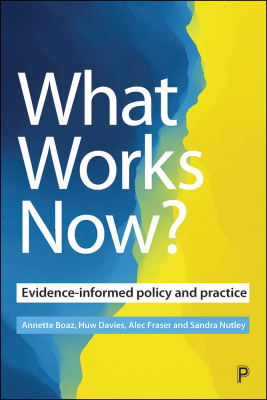
Research-based knowledge, often developed in – or in partnership with – academia, can help to improve public policy and public services such as those in health care, social care, education and the criminal justice system. Some of the ways in which research-based knowledge can help is through the better identification and delineation of social problems and public need, the development and testing of more effective interventions, and the devising of new and more effective methods of implementation. However, to deliver such benefits, the knowledge gained through research needs to be shared, accessed, integrated with other types of knowledge, and then applied in non-academic settings. The Research Unit for Research Utilisation (RURU) from the School of Management understands the challenges that arise with such knowledge sharing, and explores and promotes better ways of using academic knowledge in the public domain.
Integrating Research
Founded in 2001, RURU’s work centres on understanding the ways research-based knowledge is (or is not) used in public policy and service delivery. RURU’s main insights have focused on the idea that the articulation and application of research findings are complex, social, interactive and context-dependent processes. Much of the use of research integrates and adapts rather than simply adopts, combining study insights with other types of knowledge to suit context-dependent needs. Additionally, RURU has found that research use is enhanced by sustaining interactions between researchers and research users; multiple mechanisms being used to encourage research use; and the development of a supportive context for research-based practice.
This means that we need to foster an environment that encourages attention to research-based knowledge outside of the academic sphere. Making this a reality is challenging. To facilitate this, RURU has identified three models of evidence-based practice: the research-based practitioner model, the embedded research model, and the organisation-excellence model. These models each articulate different ways public organisations can integrate research knowledge into their methodologies. Furthermore, RURU has identified that for any individual piece of research to be useful, it needs to be situated within a wider body of knowledge, allowing its validity to be certified, its limitations to be understood, and its context clarified.
Influencing Research Funding Bodies
RURU’s work on how research can be used in public policy and practice has influenced the thinking, strategies, and practices of research funders and intermediaries across different sectors.
The Educational Endowment Fund (EEF), a major funder of education research in the UK, supports teachers and senior leaders to raise the attainment of disadvantaged children by helping them make the best use of available academic evidence. RURU’s research has informed the EEF’s design of research projects, allowing for them to better understand how schools and system leaders engage with, utilise, and use research. Professor Sandra Nutley from the School of Management worked as an advisor to the EEF between 2013 and 2016. During this time, she helped transform the EEF’s approach to improving research use – the EEF went on to adopt a more systems-based approach to mobilising research. One result of this was the EEF’s development of the Research Schools Network, a national network of 37 schools across England. These schools work together to use evidence to more effectively inform their teaching.
Additionally, RURU’s research has impacted the National Institute for Health Research (NIHR). Drawing on the wider work of RURU, Professor Huw Davies advised the NIHR in their selection and development of large-scale collaborative partnerships between universities and surrounding NHS organisations. In 2013, RURU concluded that there was a lack of high-quality research on appropriate training and support for knowledge mobilisation across the NHS. This led to the introduction of a research-based element in NIHR’s Knowledge mobilisation Training Fellowships: aiming to develop a critical mass of individuals who can lead and champion research-based knowledge mobilisation in applied health research.
Influence on Intermediaries Supporting Policy and Practice Development
RURU’s influence is particularly clear when looking at their work with intermediary bodies tasked with improving the use of research in public services. A largescale shift promoted by RURU is a move away from passive dissemination towards a more active ‘knowledge mobilisation’ model: allowing for research use to be a more social, interactive and participatory activity.
One of these intermediaries, Research in Practice (RIP), works with a membership network of 127 local authorities and 12 national charities in England. RIP has used RURU’s work since 2013 to position social work professionals as active agents in knowledge creation and use, as opposed to passive recipients of research. This has enabled RIP to grow in size and influence, its network almost doubling in size since September 2013.
Another intermediary, The Sax Institute, is an Australian agency leading the promotion of research evidence in health policy. Noting RURU’s work, the chief executive of The Sax Institute asked Davies to help them redesign the process of research engagement. From 2011 to 2019, Davies worked with the Sax Institute to implement the Institute’s Centre for Informing Policy in Health with Evidence from Research (CIPHER). Through implementing RURU’s work, the Sax Institute developed new facilities to improve research: building a training program for early career researchers on working with policy agencies and for policy makers to work effectively with researchers.
Finally, The Institute for Research and Innovation in Social Services (Iriss) is an intermediary charity which centres on building the capacity of Scottish social services to obtain and utilise research. Iriss’s programmes have been shaped by RURU: with staff from Iriss regularly attending RURU seminars and workshops since 2012. Iriss’s focus on creating the conditions for effective information sharing was heavily influenced by RURU’s research on strategies to improve research. Additionally, Iriss’s Evidence Search and Summary Service (ESSS) is underpinned by RURU’s insights into how to integrate research evidence with knowledge from other sources.
Overall, RURU has operated as a powerful source of information regarding the application of research for public good. Through working with policy agencies, service delivery organisations, funding bodies and intermediaries, RURU has boosted the capacity of academic knowledge to make a difference, indirectly improving public services for public benefit.


